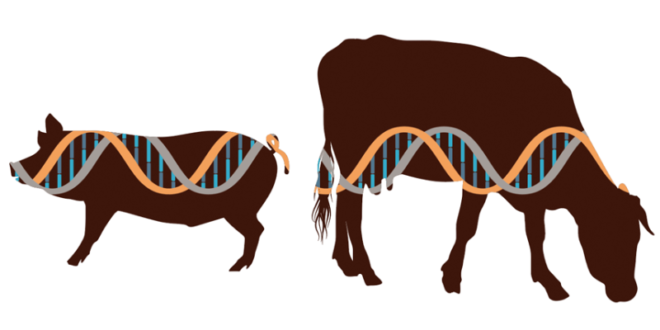By Ying Zhu
Deep in the bellies of cows are tiny microbes that ferment grass and hay, breaking it down into fatty acids that serve as bovine energy—and into planet-warming methane gas. The gas eventually makes its way to the atmosphere via cow burps. The 980 million or so cows around the globe account for 14.5% of all human-linked greenhouse gasses overall and 27% of methane emissions.
Scientists and companies are coming up with plenty of ways to curb cow methane, from simply changing their food source to breeding “green” animals. A British-Swiss startup company, Mootral, has developed a food supplement designed to reduce methane emissions during the fermentation process. It is added to the cows’ feed and given throughout their lifetimes. While such a strategy does indeed appear to change their microbiomes enough to reduce methane emissions, it might be too expensive and impractical to scale. Because there are a billion cows in the world, many of them are in low or middle-income countries. Those farmers can’t afford the supplements. A lot of cows graze—you can’t give a grazing cow a supplement every day.
Recently, $70 million in funding from the TED Audacious Project was granted to Innovative Genomics Institute, founded by the Nobel Prize winner Jennifer Doudna, Ph.D. Scientists hope to soon be working on another solution to reduce methane emission: editing the genomes of cows’ microbiota.
Scientists will need to figure out how to get the editing machinery into enough bacteria within a microbial community and have it perform its function. They will first look to viruses to do that. The team is going to advanced sequencing technologies to characterize livestock microbiomes. Afterward, they’ll then look at how to get the treatment successfully to the cow’s digestive system. That will most likely happen in the form of an oral pill that’s given early in the animal’s life when there’s the greatest potential for making long-lasting changes to its gut bacteria. That way, a stable, low-methane microbiome can be created, and the treatment of cows is scalable across the entire globe. The team hopes to be able to test their idea in cows by year four or five of the seven-year grant period.
 Tempus Magazine By Students, For Students
Tempus Magazine By Students, For Students 



